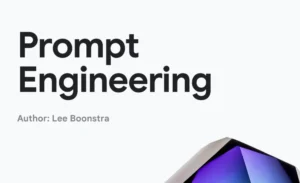7 Best AI-Powered Tools for Sales Automation for Growing Teams
Sales teams are burning out faster than ever. Between cold outreach, lead qualification, and endless follow-ups, there’s barely time to actually sell. The frustration is real – watching potential deals slip through the cracks because you can’t keep up with the manual workload. But here’s the thing: the best AI-powered tools for sales automation can eliminate these pain points and give you back control of your sales process.
Lindy
Let’s start with the platform that’s been making waves in the startup world. Lindy positions itself as the ultimate AI sales automation solution for growing businesses, and honestly, it lives up to the hype.
What makes Lindy special is its no-code approach to sales automation. You don’t need a computer science degree to set up complex workflows – their drag-and-drop interface makes it surprisingly easy to create sophisticated sales sequences.
Key features
- Automated workflow builder that handles everything from lead capture to deal closing
- AI-powered lead scoring that prioritizes your hottest prospects
- Smart email sequences that adapt based on prospect behavior
- CRM integration with popular platforms like HubSpot and Salesforce
- Real-time analytics to track performance and optimize campaigns
Pricing
Lindy offers a generous free plan with 400 monthly credits – perfect for testing the waters. Their paid plans start around $50-80 per user per month, making it accessible for small to medium-sized teams.
Pros and cons
Pros:
- Incredibly user-friendly interface
- No coding required
- Comprehensive automation coverage
- Great for startups and growing businesses
- Responsive customer support
Cons:
- Limited customization for complex enterprise needs
- Credit-based system can be confusing initially
- Newer platform with fewer integrations than established competitors
Best for: Startups and small businesses looking for an all-in-one sales automation solution without the technical complexity.
Apollo.io
When it comes to AI-powered lead generation, Apollo.io is the heavyweight champion. This platform combines a massive database with intelligent automation to help you find and connect with your ideal prospects.
Apollo’s strength lies in its data-driven approach to sales automation. Their database contains over 275 million contacts and 73 million companies, all enhanced with AI-powered insights that help you identify the best opportunities.
Key features
- Massive contact database with advanced search filters
- AI-powered prospecting that identifies lookalike customers
- Automated email sequences with personalization at scale
- Sales engagement tools including calling and social selling
- Advanced analytics and reporting capabilities
Pricing
Apollo offers a free plan with limited features, while paid plans typically start around $49-99 per user per month depending on your needs and database access requirements.
Pros and cons
Pros:
- Extensive contact database
- Powerful search and filtering capabilities
- Strong email automation features
- Excellent data accuracy
- Comprehensive sales engagement tools
Cons:
- Can be overwhelming for beginners
- Higher-tier plans get expensive quickly
- Learning curve for advanced features
- Some users report occasional data quality issues
Best for: Sales teams that prioritize lead generation and need access to a comprehensive prospect database.
Useful Articles:
Salesforce Einstein
You can’t talk about sales automation without mentioning Salesforce. Their Einstein AI technology has revolutionized how enterprise sales teams operate, bringing predictive analytics and intelligent automation to the world’s most popular CRM.
Salesforce Einstein isn’t just another add-on – it’s deeply integrated into the platform, providing AI-powered insights across every stage of the sales process.
Key features
- Einstein Lead Scoring that prioritizes prospects using machine learning
- Predictive forecasting with up to 82% accuracy
- Opportunity insights that suggest next best actions
- Automated activity capture for emails and calendar events
- Voice-powered data entry and retrieval
Pricing
Salesforce pricing varies significantly based on your needs. Plans range from $25 per user per month for basic features up to $500+ per user per month for enterprise-level Einstein capabilities.
Pros and cons
Pros:
- Industry-leading CRM with powerful AI features
- Highly customizable to fit specific business needs
- Extensive third-party integrations
- Strong analytics and reporting
- Proven track record with enterprise clients
Cons:
- Expensive, especially for small businesses
- Complex setup and configuration
- Steep learning curve
- Can be overkill for simple sales processes
Best for: Large enterprises and established businesses that need comprehensive CRM functionality with advanced AI capabilities.
HubSpot Sales Hub
HubSpot has built a reputation for making complex sales and marketing tools accessible to everyone. Their Sales Hub combines inbound marketing principles with AI-powered automation to create a platform that’s both powerful and user-friendly.
What sets HubSpot apart is how seamlessly it integrates sales automation with marketing and customer service tools, creating a true customer lifecycle management system.
Key features
- Smart content personalization based on prospect behavior
- Automated email sequences with A/B testing capabilities
- Deal pipeline automation with customizable stages
- AI-powered chatbots for lead qualification
- Comprehensive reporting across sales, marketing, and service
Pricing
HubSpot offers a robust free tier that includes basic CRM and automation features. Paid plans start at $45 per user per month and scale up based on advanced features and contact limits.
Pros and cons
Pros:
- Excellent free tier
- User-friendly interface
- Strong integration between sales, marketing, and service
- Great educational resources and community
- Reliable customer support
Cons:
- Can get expensive as you scale
- Some advanced features require higher-tier plans
- Limited customization compared to enterprise solutions
- Reporting can be basic for complex needs
Best for: Small to medium businesses that want an integrated approach to sales, marketing, and customer service automation.
Reply.io
For teams focused on cold outreach automation, Reply.io is a specialized platform that excels at scaling personalized communication. They’ve built their entire platform around making cold outreach more effective and less time-consuming.
Reply.io’s approach is refreshingly focused – instead of trying to be everything to everyone, they’ve perfected the art of automated email sequences and multi-channel outreach.
Key features
- Multi-channel sequences combining email, LinkedIn, and phone calls
- AI-powered personalization at scale
- Advanced email deliverability tools and monitoring
- A/B testing for subject lines, content, and timing
- CRM integration with automatic data syncing
Pricing
Reply.io pricing typically starts around $60-90 per user per month, with different tiers based on the number of contacts and advanced features you need.
Pros and cons
Pros:
- Excellent for cold outreach campaigns
- Strong deliverability rates
- Multi-channel automation capabilities
- Good personalization features
- Detailed analytics and reporting
Cons:
- Limited beyond outreach automation
- Can be complex to set up initially
- Higher learning curve for advanced features
- Pricing can add up for larger teams
Best for: Sales teams and agencies that rely heavily on cold outreach and need sophisticated email automation capabilities.
Gong
Gong takes a unique approach to sales automation by focusing on conversation intelligence. Instead of just automating tasks, Gong analyzes your sales calls and meetings to provide insights that help your team sell more effectively.
This platform is particularly valuable for teams that do a lot of phone and video selling, as it can identify patterns in successful deals and coach reps on best practices.
Key features
- Conversation analytics that identifies successful sales patterns
- Deal risk assessment with early warning systems
- Automated call summaries and action items
- Coaching insights based on top performer analysis
- Revenue forecasting using conversation data
Pricing
Gong pricing is available only upon request, as it varies significantly based on team size and specific needs. Expect enterprise-level pricing for this sophisticated platform.
Pros and cons
Pros:
- Unique conversation intelligence approach
- Valuable coaching insights
- Strong analytics and reporting
- Helps improve overall sales performance
- Good integration with popular CRM systems
Cons:
- Expensive and typically enterprise-focused
- Limited customization options
- Requires significant call volume to be effective
- Some users report AI insights can miss context
Best for: Enterprise sales teams with high call volumes who want to improve their sales conversations and coaching processes.
Useful Articles:
Instantly.ai
When you need to scale cold email without sacrificing deliverability, Instantly.ai is the platform many sales teams turn to. They’ve built their reputation on helping businesses send thousands of emails while maintaining high inbox placement rates.
Instantly.ai focuses specifically on email automation and deliverability, making it a specialized tool for teams that rely heavily on email outreach.
Key features
- Unlimited email accounts for better deliverability
- Advanced warm-up sequences to protect sender reputation
- AI-powered personalization for higher response rates
- Detailed deliverability monitoring and optimization
- Lead database with verified contact information
Pricing
Instantly.ai offers competitive pricing starting around $30-60 per month for basic plans, with higher tiers available for teams that need more advanced features and higher sending volumes.
Pros and cons
Pros:
- Excellent deliverability rates
- Unlimited email account management
- Strong personalization capabilities
- Competitive pricing
- Good customer support
Cons:
- Limited to email automation only
- Interface can feel basic compared to all-in-one platforms
- Requires technical knowledge for optimal setup
- Limited CRM integration options
Best for: Sales teams and agencies that send high volumes of cold emails and need to maintain excellent deliverability rates.
Now that we’ve covered the individual platforms, let’s see how they stack up against each other.
Comparison Of The Best AI-Powered Tools For Sales Automation
| Platform | Best For | Starting Price | Free Plan | Key Strength | Main Weakness |
|---|---|---|---|---|---|
| Lindy | Startups & SMBs | $50-80/month | Yes (400 credits) | No-code automation | Limited enterprise features |
| Apollo.io | Lead generation | $49-99/month | Yes (limited) | Massive contact database | Can be overwhelming |
| Salesforce Einstein | Enterprise CRM | $25-500+/month | Trial only | Comprehensive AI features | Complex & expensive |
| HubSpot Sales Hub | Integrated sales/marketing | $45/month | Yes (robust) | All-in-one platform | Gets expensive at scale |
| Reply.io | Cold outreach | $60-90/month | No | Multi-channel sequences | Limited beyond outreach |
| Gong | Conversation intelligence | Custom pricing | No | Call analytics & coaching | Enterprise pricing only |
| Instantly.ai | Email deliverability | $30-60/month | No | High-volume email sending | Email-only focus |
The best AI-powered tools for sales automation can transform your sales process from a manual grind into an efficient, data-driven machine. Each platform brings unique strengths to the table – whether you need comprehensive CRM functionality, specialized outreach capabilities, or conversation intelligence insights. The key is choosing the tool that aligns with your team’s specific needs, budget, and growth goals.







